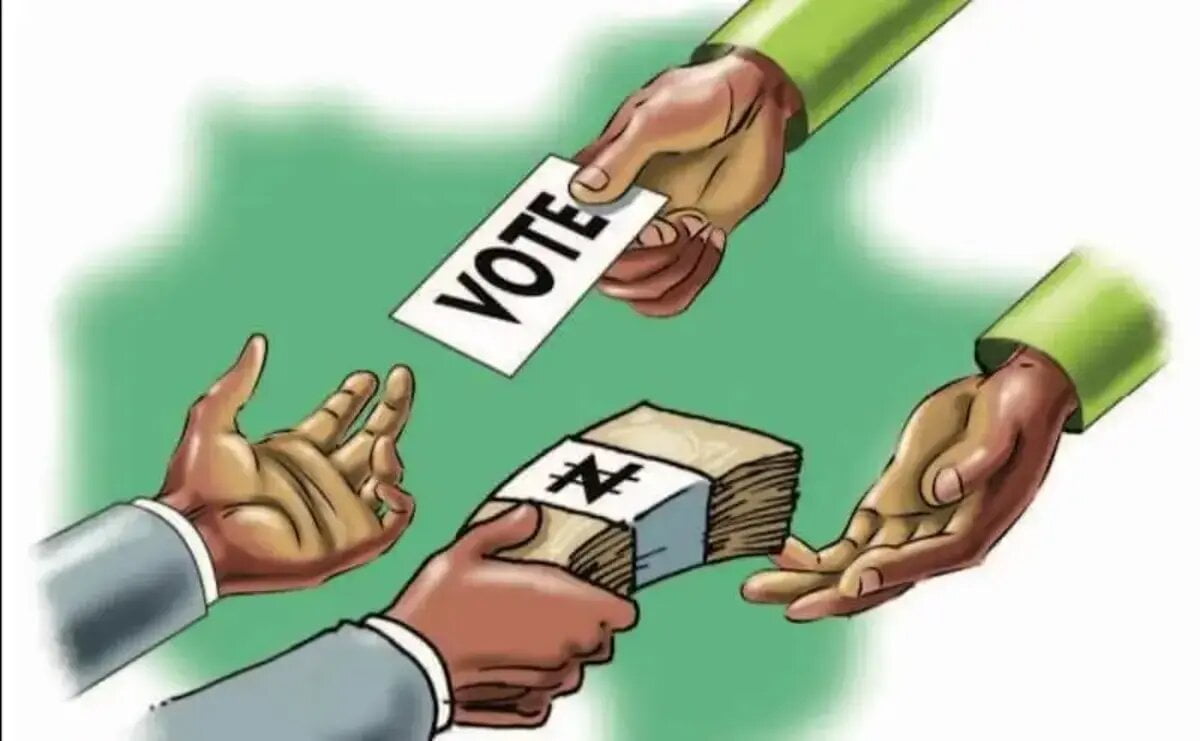By Kunle Sanni (Guest Writer)
The Federal Government, while marketing the contentious naira redesign policy to Nigerians last year, it was widely regarded by political and policy experts to be aimed and hammered to curb vote-buying in the 2023 general election.
Now that the polls have been concluded and winners declared, analysts and election observers expressed the opinion that vote buying survived despite the implementation of the contentious policy and the efforts of the anti-corruption organisations.
INEC held presidential and national legislative elections in February, as well as gubernatorial and state assembly elections on March 18 and supplemental elections on April 15.
President-elect Bola Tinubu of the ruling All Progressives Congress Party won the elections with 8,794,726 votes to defeat his closest rival, Atiku Abubakar of the People’s Democratic Party (PDP), who scored 6,984,520 to emerge second.
Only 24.9 million people voted out of 93.47 million registered voters, representing less than half of all eligible voters. The stark contrast comes in the context of the Electoral Commission’s poor voter education and the N305 billion ($2 billion) financial allotment for the elections, which many Nigerians believe is excessive.
The election was also marred by several cases of electoral violence, voter intimidation and inducement.
A political think tank called the Centre for Democracy and Development raised doubts about the legitimacy of the elections by citing incidents of alleged vote-buying in public, violence, and intimidation.
This report analyses the issues of vote buying in the last elections and the efforts by the federal government to curtail the problem.
VOTE BUYING
Vote buying is common in most Nigerian elections. In previous elections, the contention of voter inducement was always a game for the wealthy, with party agents engaging in dialogues with voters outside polling places to hand out cash and other forms of palliatives.
Political actors who buy votes are less likely to face consequences, while the political operatives at polling stations who are caught engaging in vote buying also face little or no prosecution despite the existence of laws prohibiting the practice.
According to a 2019 report by the United Nations Office on Drugs and Crime (UNODC) and Nigerian Bureau of Statistics (NBS) the South-south region of Nigeria had the highest prevalence of vote-buying during the 2019 national elections.
The 2023 presidential, governorship, and legislative members elections were no exceptions.
Analysis by a political think tank called the Centre for Democracy and Development raised doubts about the legitimacy of the 2023 general elections by citing incidents of alleged vote-buying in public, violence, and intimidation.
The electoral commission worked with anti-corruption organisations such as the EFCC, ICPC and the Police to reduce the problem of vote buying. One of several significant attempts which many consider as profound was the Central Bank of Nigeria’s (CBN) decision to redesign the N200, N500, and N1,000 denominations of the country’s banknotes to reduce incidents of vote buying.
But, was the CBN’s strategy and other actions successful in addressing the issue of vote buying?
Prior to the presidential elections, President Muhammadu Buhari instructed the CBN in a live broadcast speech to release the old 200 naira notes to alleviate the impact of naira note scarcity. This move had a significant impact because it resulted in a small number of arrests of people suspected of buying votes and the recovery of funds suspected of being the proceeds of vote buying during the presidential elections.
This reporter’s research into published reports indicates that the EFCC was only able to apprehend less than ten suspects in voting fraud and seized about 400 million in new naira notes. The Police in Rivers state also arrested a federal lawmaker with US dollar suspected to be used to induce voters
However, the federal government, through the CBN, complied with the Supreme Court’s directive to release the old notes days after the Presidential elections were won and lost.
The widespread practice of buying votes in elections for governor and state legislatures worsened the situation in the interim.
While observing the governorship and state Assembly elections, a combined team of EFCC monitoring team agents made some significant arrests across the nation during the governorship elections, detaining about 69 people for alleged voter incitement. While the ICPC only detained four people, the EFCC detained 65 people.
And in the supplementary elections, the EFCC alone was able to arrest about 12 persons in Kano and Katsina over buying.
Although the EFCC chairman, Abdulrasheed Bawa had appointed 18 lawyers to prosecute electoral offenders, many Nigerians who are disgruntled about the spat of high disenfranchisement as a result of vote buying and violence are keen at the outcome of the prosecutions.
INEC lists 200 electoral offenders to be prosecuted while the EFCC and ICPC would prosecute 78 persons.
For CDD, data from its 1,500 observers deployed across the country showed there were more cases of vote-buying during the governorship election compared to the presidential poll of February 25.
The group have also called for the prosecution of the electoral offenders.
